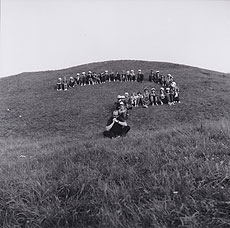So, I’ve surprised you with 2 untypical ways to find purpose in your life.
Here (Step 1) and Here (Step 2)
Hopefully, by now you’ve done homework and feel like you are progressing in new ways.
(I’d love to hear about it! Send me a note.)
Now we are on STEP 3
“S”
Service
This one may make little sense to you.
You may think,
“Really? That sounds backwards. I don’t know my purpose yet. I’ll try service once I get that figured out, duh.”
It’s not as backwards as you think.

What will appeal to us in terms of service is often closely tied to our talents, gifts, and greater purpose.
Here’s an example:
When my kids were very little I made a point of helping my friends prepare for a big, yearly program. Instead of being fulfilling, it was frustrating and felt futile. I realized that my skills and passions were better served elsewhere. This eventually lead to many other types of service that tapped into my greater purpose and held greater meaning for me.
In the beginning, what drew me to help out was a sense of friendship, community, and desire to love and minister to others–to be part of something greater than myself. Those were all things I kept seeking. What I left behind were projects that could miss the forrest for the trees. The experience helped me know when projects were too detail-oriented to be optimally useful in a greater way, for my preferences.
Would I have been able to narrow things down for myself without making this (seeming) mistake? No. And it wasn’t a mistake to help, it was a clarifying exercise.
Would I have been able to decipher what types of service aren’t a good fit for me without this experience? Unlikely.
In serving, something else happens. It’s big and you’ll see the pattern once I mention it:
In losing ourselves we are found.
That means by taking ourselves out of the middle, we can see and choose better and more easily.
(It doesn’t mean thinking less of ourselves, but thinking of ourselves less–by design. Thus, we more expertly “stumble” on to bigger insights.)
In a way, you don’t find your purpose at all, it finds you.
From my perspective, finding God works the same way. You are only lost to yourself, not to God. So you don’t so much “find him” nor does he “find” you. Instead you wake up.
The same holds true for finding your purpose.
We tend to assume, just by default, that finding our purpose must start and end with us. Not so.
Just like Worship, service makes finding your purpose far easier because it becomes a revelatory process. Finding your purpose, like finding happiness, comes as a byproduct of doing other things.
So where can you start with meaningful service that will help you find your purpose?
Here are some categories and qualifiers to explore:
If one stands out as more meaningful, or ignites your passions (which is directly connected to your purpose), try that first. Check with your church, your community, your local schools and organizations, local charities, or just asking around to see what available or sounds like a good fit.
What ever it is, do something. The key on this step in ACTION followed by reflection.
If you are already serving, reevaluate it. It is leading you to a greater purpose or holding you back?
(If you are overly involved in service, then it’s time to scale back.)
HOMEWORK – take some field notes on the following questions:
• Do you like Creating? (What do you like and how do you like to do it?)
• Do you like helping and being useful? In what ways?
•Using your body more than your mind to help out?
OR
Using your mind to help more than your body?
(At the end of the day, which feels more satisfying and why?)
• Do you like being the glue that holds people and projects together?
• Does helping behind the scenes feel meaningful?
• Do you like detail-oriented projects…
OR
Being the visionary that comes up with and starts the project?
• Do you like teaching? (If so, what about it appeals to you?)
• Do people in need ignite your passions?
What about your past service appealed to you and why?
(If you don’t have much past service to serve as a gauge, that’s your biggest obstacle. Start right away. You are much too “in the middle” of your world and you need a break from yourself.)
[You guesses it! This is handy-dandy notebook time! Write out your field notes from the questions above.]
Also consider:
What specific population do you feel drawn to serve?
(It’s okay to specialize and then turn away things that fall outside your scope. This refinement is usually helpful. However, once in a while change it up and serve outside your specific domain–it will surprise you by opening new doors or clarifying your purpose further.)
Types of Populations:
• elderly
• children
• poor
• students
• the needy
• peers
• 20-somethings
• new parents
• the forgotten populations (immigrants, incarcerated, homeless, mentally ill, etc.)
• who else?…
Assess how your TALENTS and SKILLS play into your past service decision.
• What sort of technological knowledge, special skill, unique experience, or centering insight makes certain kinds of service easier?
• What is your “backstory”? Your backstory tends to shift you toward you purpose.
The next step is “P”…come back soon.
Do you know anyone who’s struggling finding purpose, or feels “off-track”? Pass this along!




